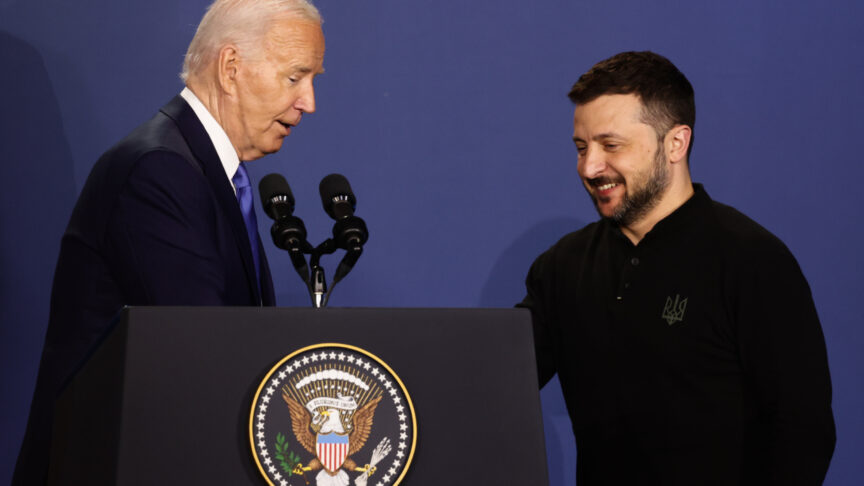Covid bereavement as a European experience
Liberal politicians in Europe have begun to articulate covid-19 grief in their national political contexts. This is an important step in leading the continent out of the pandemic – and away from populism
In the face of illiberal populism, liberal democrats are searching for a new vision of a common Europe. But where they have failed so far is in understanding the power of emotion in politics. Some liberal democratic figures are starting to find their way in this during the pandemic – such as in Poland, where the mayor of Warsaw, Rafal Trzaskowski, will often refer to the importance of solidarity at this time. In Slovakia, the president, Zuzana Caputova, has spoken extensively about empathy. But, overall, liberal leaders still have some way to go – although they are far ahead of their illiberal counterparts, who have abused the pandemic to accrue power while remaining silent about the grief the experience has caused.
Since 2020, Europe has been united by common mourning for the pandemic deaths. It is time to speak out about this. It would be difficult to find stronger bonds than those forged by common commemoration of the dead.
Euphoria before the storm
Despite a few relatively quiet, almost coronavirus-free, summer months, the fourth wave of the covid-19 pandemic is already upon us. In some countries, such as Romania, the number of deaths is as high as ever. In Poland, unoccupied beds are already scarce in the so-called covid-19 hospitals. In those and other places, people’s lives are once again becoming dominated by fear of contagion. What yesterday seemed a matter of hygiene is again going right to the heart of politics.
It is therefore worth thinking now, before we enter another dark winter, about what the most important experiences of the previous pandemic waves are and how we can draw lessons from them for the coming months.
Yes, but
According to Eurostat, between January 2020 and June 2021, extremely high rates of excess mortality were recorded. In April 2020, this stood at 25 per cent and in November 2020 it was 40 per cent more than usual. In some countries excess mortality reached a figure not seen since the second world war. Deaths were caused not only by the virus itself, but also by restrictions in accessing health services for cancer or heart patients. The grief caused by those deaths is a crucial subject for us today.
A political sense of bereavement
Let us consider for a moment what grief is. In their beautiful book on bereavement, Colin Murray Parkes and Holly G Prigerson argue that our lives are all about constant change. We mature and age, we experience successes and failures. These changes involve both gain and loss of loved ones. The authors believe that we often treat mourners as people who are ill, telling them to lie down and rest; we think that that this will help them recover. The experience of other people’s grief is an exercise in empathy.
Dramatic collective death demands a search for collective sense and metaphors
The excess mortality brought about by covid-19 is an experience undergone not only by individuals, but also by the political community. It has not only a sociological significance, but also political meaning in the national and international contexts. Dramatic collective death, be it caused by war, economic crises, natural disasters – pandemics included – always carries political potential and demands a search for collective sense and metaphors. The mourners suffer loss, but they are also reminded of community and its values.
We’re moving on?
Today Europe appears to have largely moved on, but this may be more collective denial than collective bereavement. Denial can be part of bereavement, but only if it is then followed by its other important stages. Elisabeth Kuebler-Ross named five in total. After denial, there come anger, bargaining, depression, and acceptance. David Kessler added another: attaching meaning – which is not always easy in the case of natural disasters.
Some politicians have already understood the political significance of mourning. Several rituals of bereavement and rites of passage have been organised, such as the great requiem in Madrid, the ceremonial lighting of candles in Prague, and days of remembrance in Italy and Britain. The German president Frank-Walter Steinmeier and the Italian president Sergio Mattarella spoke about the meaning of suffering in a society.
Illiberal plagues
Yet there are still many countries where collective bereavement is not yet voiced. Silence reigns, especially in illiberal regimes such as Poland, where the government acts as if the devastating second and third waves did not take place.
It is not by chance that liberal democrats are further ahead than their illiberal opponents in speaking about covid-19 grief. It is they who can make empathy an essential tool in recreating political communities after both the pandemic and illiberal populism recede. Populists, however, tend to use the pandemic for the sake of further dismantling democracy. Early in 2020, politicians such as Viktor Orban started to translate the health emergency into a pretext for strengthening the executive. In spring that year, Orban was allowed to rule by decree, and the Polish authorities changed the electoral law to make it more convenient for them.
And speaking of the common experience of grief and fear can strengthen not only national communities, but also the European community. In the decades after the second world war, aside from rebuilding nation states and European diplomacy, leaders used a particular political tool. As the cameras flashed they shook hands and embraced each other in powerful declarations of remorse and forgiveness. Often speechless in the face of war atrocities, they created a space where they could meet not on a national, but on a human, level.
Fortunately, today in the European Union, we do not face the horrors of war. However, we still need empathy as a glue to hold together our impermanent and precious community of values. Common bereavement in the face of the coronavirus pandemic may bring us closer – and take us together into the future.
Dr Jarosław Kuisz is editor in chief of the Polish intellectual and centrist online weekly Liberal Culture (KulturaLiberalna.pl). He is currently a POPBACK Policy Fellow at Centre for Science and Policy, University of Cambridge.
Prof. Karolina Wigura is an ECFR Council Member and member of the board of the Polish intellectual and centrist online weekly Liberal Culture (KulturaLiberalna.pl). She is currently a Richard von Weizsäcker Fellow at Robert Bosch Academy in Berlin.
The European Council on Foreign Relations does not take collective positions. ECFR publications only represent the views of their individual authors.



